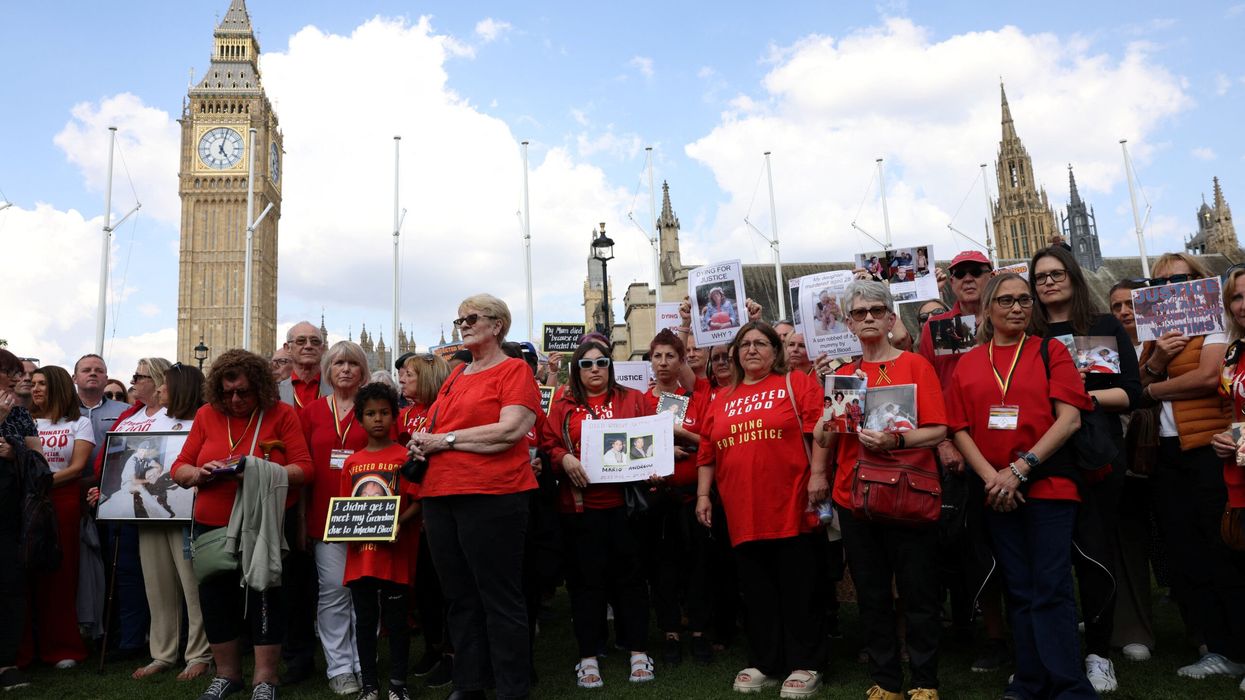A decades-long scandal in which thousands of people died in the UK after being treated with infected blood was covered up and largely could have been avoided, found a bombshell report published on Monday.
More than 30,000 people were infected with viruses such as HIV and hepatitis after being given contaminated blood between the 1970s and early 1990s, the Infected Blood Inquiry concluded.
More than 3,000 of them died in what has been described as the biggest treatment disaster in the eight-decade history of the state-run National Health Service (NHS).
The long-awaited report, running at more than 2,500 pages, laid bare a "catalogue of failures" with "catastrophic" consequences for victims and their loved ones.
Authored by judge Brian Langstaff, it found that there were deliberate attempts to conceal the scandal, including evidence that government officials destroyed documents in 1993.
"Viewing the response of the NHS and of government overall, the answer to the question, 'Was there a cover-up?' is that there has been," the report stated.
"Not in the sense of a handful of people plotting in an orchestrated conspiracy to mislead, but in a way that was more subtle, more pervasive and more chilling in its implications.
"In this way there has been a hiding of much of the truth," it added.
"This disaster was not an accident," Langstaff said. "The infections happened because those in authority - doctors, the blood services and successive governments - did not put patient safety first."
Victims included those needing blood transfusions for accidents and in surgery, and those suffering from blood disorders such as haemophilia who were treated with donated blood plasma products.
On top of the 3,000 who died, many more were left with lifelong health problems.
Langstaff said that "the scale of what happened is horrifying".
"I have to report that it could largely, though not entirely, have been avoided," he concluded.
Prime Minister Rishi Sunak is expected to express regret when he speaks in parliament later on Monday.
A compensation package for victims and their families, which is expected to be worth several billion pounds (dollars), is due to be announced by the government on Tuesday.
Former prime minister Theresa May launched the inquiry, one of the country's largest, in 2017.
Campaigners said the report was the culmination of a decades-long struggle.
"We feel emotional at the moment in the sense that it's like a 40-year-old fight, and it's coming to an end and we've come to the end of our energy levels," said Suresh Vaghela, 61.
He received a contaminated blood product while being treated for haemophilia when he was around 13 years old, and was infected with both HIV and hepatitis C.
Clive Smith, chair of the Haemophilia Society, said the scandal had rocked trust in the medical establishment. "(It) really challenges the trust that we put in people to look after us, to do their best and to protect us," he told reporters. (Agencies)




